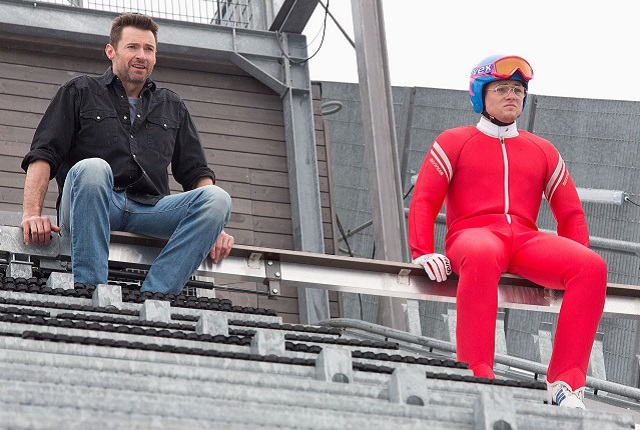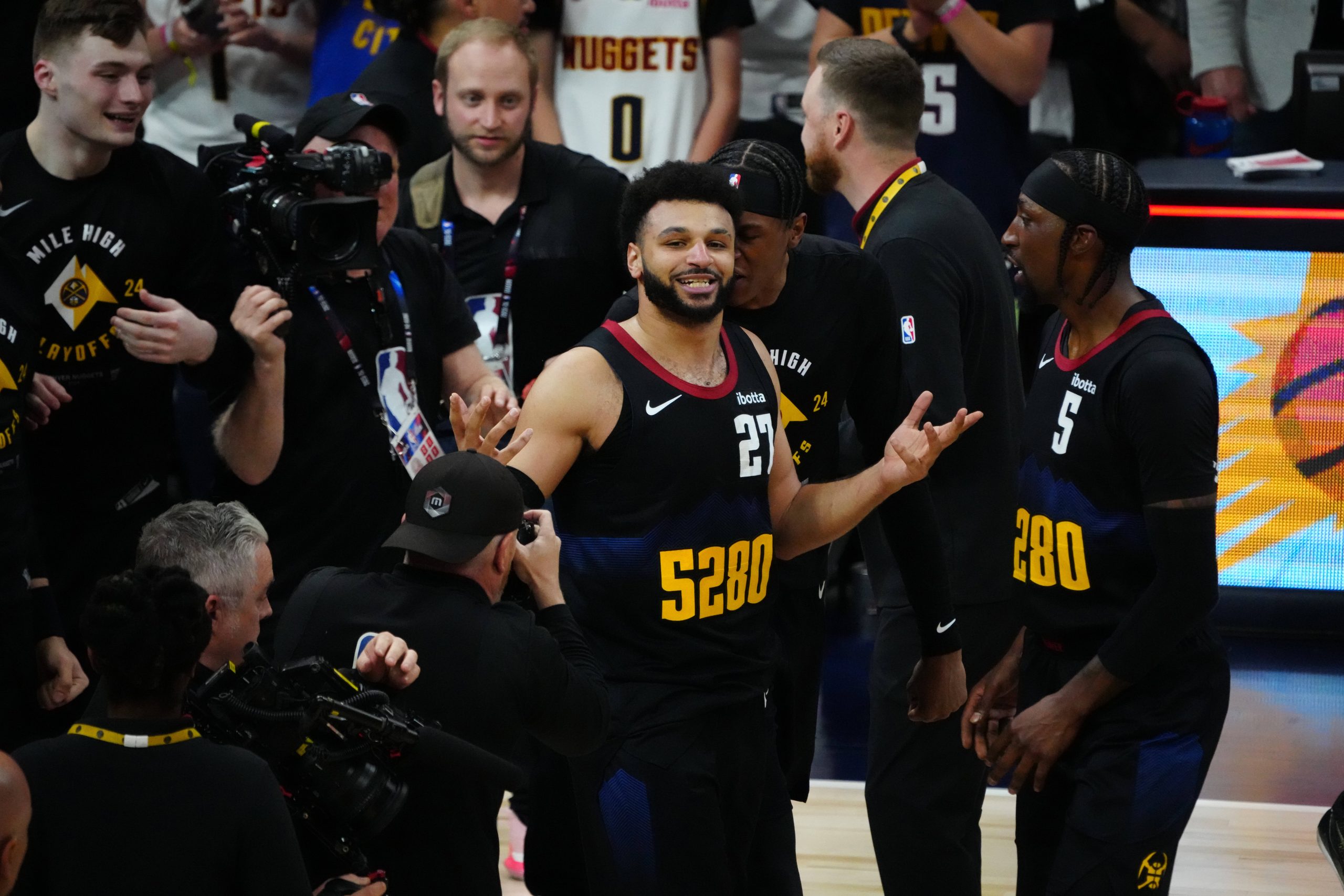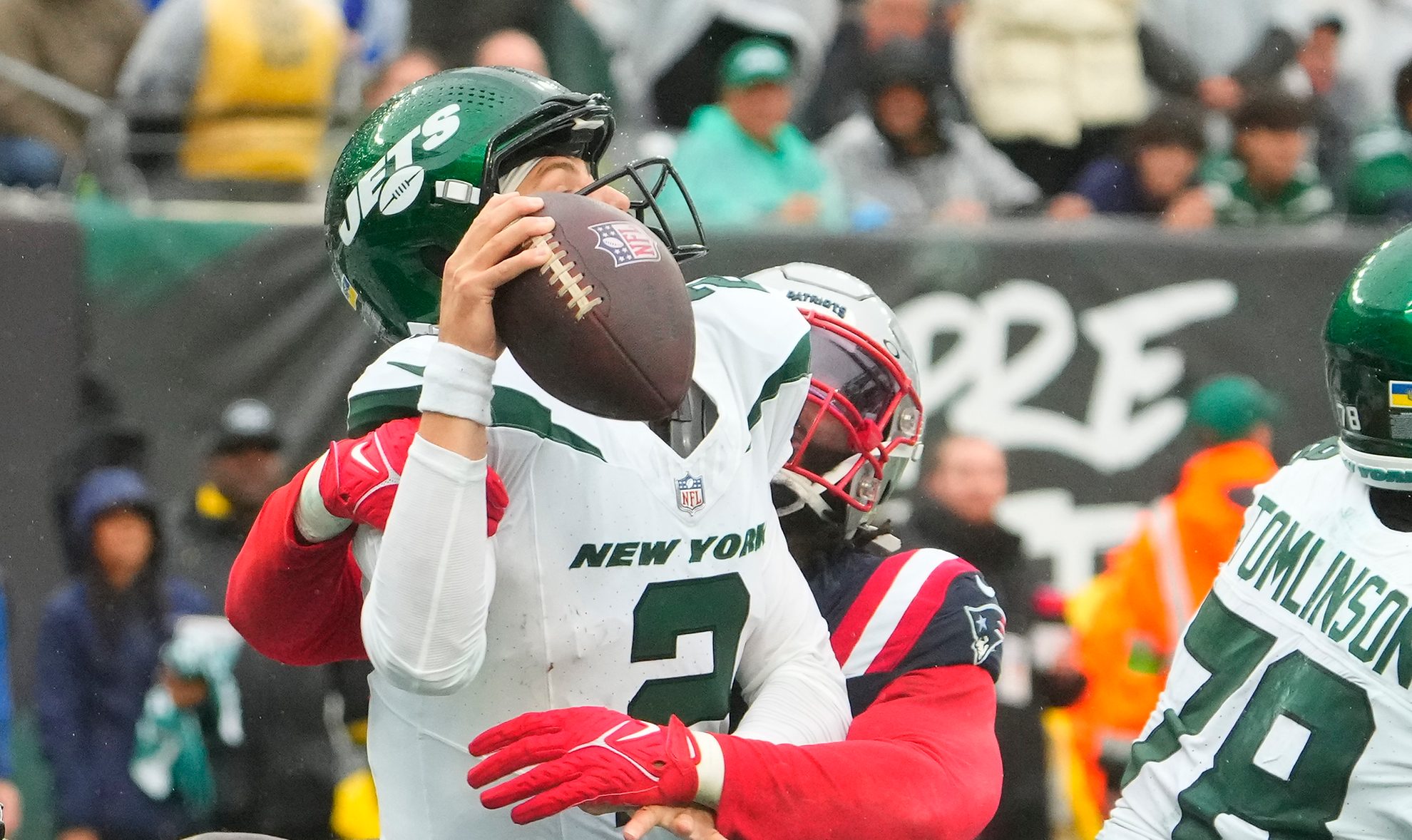It’s curious timing for Eddie the Eagle to hit theaters the week after Race was released. Both movies tell similar stories, yet take vastly different approaches.
Comparing the two films isn’t really fair, of course. Race tells the story of Jesse Owens, a legendary athlete and historical figure whose cultural impact hasn’t really been acknowledged with the movie it deserves. Yet doing justice to Owens and his place in history puts some considerable pressure on filmmakers, which might be restricting in terms of creativity. The movie has to get it right, and probably won’t take many chances because of that, which is reflected in the final product.
Eddie the Eagle follows the far less impressive endeavors and Olympic aspirations of Michael “Eddie” Edwards, who was anything but a natural athlete. While Owens had loads of raw talent that just needed to be honed and pointed in the right direction, Edwards had dreams of competing at the highest amateur level without any of the physical gifts that allowed him to fulfill those ambitions.
Edwards also lacks a specialty, and the beginning of the film runs through an amusing montage of him trying to find an event he might be good at, punctuated with results that don’t go so well. He goes through numerous pairs of glasses that get broken as he falls down attempting hurdles, pole vaults and weightlifting. Javelin throws go awry and through windows.
Through it all, his mother (Jo Hartley) is nurturing and encouraging, while his father (Keith Allen) slowly loses patience with the damage caused and the money it costs. He figures that his son will eventually outgrow these silly dreams and accept reality. But Eddie never gives up, no matter how hopeless or misguided the idea of him competing in the Olympics is to everyone but him.
Ultimately, that’s the primary theme of Eddie the Eagle. Edwards compensates for his lack of talent and skill with stubbornness, just the right amount of self-delusion, and unyielding determination. Even when it’s obvious that Edwards is completely overmatched and in danger of getting himself seriously injured or killed, he achieves some level of success because he won’t stop trying. He’s dreamed about competing in the Olympics for so long that he doesn’t know what else to do. He’s made time for nothing else in his life. The alternative is becoming a plasterer, the trade that’s employed the men in his family for generations.
Ian at the Movies
- Borg vs. McEnroe is surprisingly good, portraying two tennis icons not as different as believed
- Rampage works because it doesn’t try to adapt the video game
- Why Tomb Raider and Alicia Vikander break the bad video game movie trend
- Game Night uses all its pieces well, notably Rachel McAdams, for a twisty story full of laughs
- Black Panther is like no other Marvel film, reaching a higher bar as a result: 5 takeaways
Eventually, Edwards is kicked off the team, seemingly killing his dream for good. But while watching VHS tapes of previous Olympic competitions, he becomes inspired by the grace and spectacle of ski jumping. He soon discovers that Britain doesn’t have an Olympic ski jumping team, which gives him a lane to competing in the Winter Games. By virtue of being a one-man team, Edwards has no apparent obstacles toward qualifying for the event.
Edwards goes to an international ski jumping training facility in Germany, aiming to prepare for the Olympics. But he’s not just training; he’s learning how to jump for the first time. At 22, Edwards is far behind the typical development timeline for Olympic level ski jumpers. A Norwegian coach — presumably representing the elite competitors in the sport — points out that successful jumpers begin learning at five or six years old. Olympic events are held on the 70-meter and 90-meter hills. Edwards is just learning how to jump from the 15-meter hill and hasn’t successfully landed from the 40-meter ramp.
However, Edwards only has to be successful at a certain level. He’s not competing against the best ski jumpers in the world, but against Great Britain’s history in the sport, which is anything but accomplished. As ridiculous as it might sound, Edwards basically just has to land a jump from the 70-meter hill to qualify for the Olympics. But he has to get to that level first.
After continually failing to land from 40 meters, getting bruised and broken in the process, Edwards catches the attention of Bronson Peary (Hugh Jackman), who works at the ski resort and resurfaces the slopes. As it turns out, Peary is a former world-class ski jumper whose Olympic ambitions were ruined by his arrogance and self-destructive tendencies. Once Edwards learns of Peary’s past — and his tutelage under legendary coach Warren Sharp (Christopher Walken) — he continually pesters him for coaching tips. However, Peary doesn’t like to be reminded of his ski-jumping days, sees Edwards as a hopeless cause and doesn’t want to get involved.
But Peary soon comes to admire Edwards’ persistence, as he insists on continuing to train even after a disastrous first attempt to jump from the 70-meter hill that puts him in the hospital. Tutored by Peary, Edwards subsequently lands that one jump necessary to qualify at a local event. But British Olympic officials change the rules and declare that any ski jumper has to land a jump of at least 61 meters to qualify; Edwards’ one successful jump landed at 32 meters.
Of course, Edwards isn’t going to give up. It’s the theme of the movie! To get to that distance and be recognized by international records, Edwards has to tour the European circuit. That leads us to a training montage, with Peary employing the drills and techniques that elite skiers use to increase their distance and prepare for international competition. After many pratfalls and stumbles, Edwards gets better and stronger through sheer repetition. He still doesn’t have the talent, but his relentless work ethic pushes him through those obstacles and he qualifies for the 1988 Winter Olympics. In Calgary, Edwards’ enthusiasm despite average skills makes him a sensation among fans and media.
Eddie the Eagle is as formulaic as a sports movie can get. Peary’s narrative of a failed athlete running away from his past who finds redemption through coaching a fledgling hopeful is a tall, handsome cliché. Yet director Dexter Fletcher, along with screenwriters Sean Macaulay and Simon Kelton, steers into all of the sports movie tropes, even venturing toward TV movie territory with their story choices and cheesy 1980s music. But the shots of the ski jumps and the Olympic events, in addition to the star power of Jackman and Egerton, make this an effort worthy of the big screen.
For Egerton, playing Edwards is an intriguing choice for Egerton after his action role in Kingsman seemingly put him on a path toward leading man and superhero parts. But this is so much more interesting than putting on spandex and/or leather to play a member of the X-Men. Maybe Egerton overplays Edwards’ physical goofiness, social ineptness and inherent dorkiness, surely compensating for the fact that he’s actually a very good-looking fellow. But the act is pretty close to the real thing, even if most of the film’s story isn’t. (Peary is an entirely fictional character, for instance.)
Even while knowing exactly what’s going to happen because there’s no other way this narrative can play out, Eddie the Eagle is still fun to watch because it embraces the wackiness of its story and subject. It can’t possibly be serious, so it doesn’t try to be. With the help of Egerton and Jackman, Fletcher hits every emotional note required to inspire us and touch our soft spots. Heartstrings are being tugged, but this movie does it well enough that the experience is still enjoyable, thanks largely to its endearingly goofy lead character.








